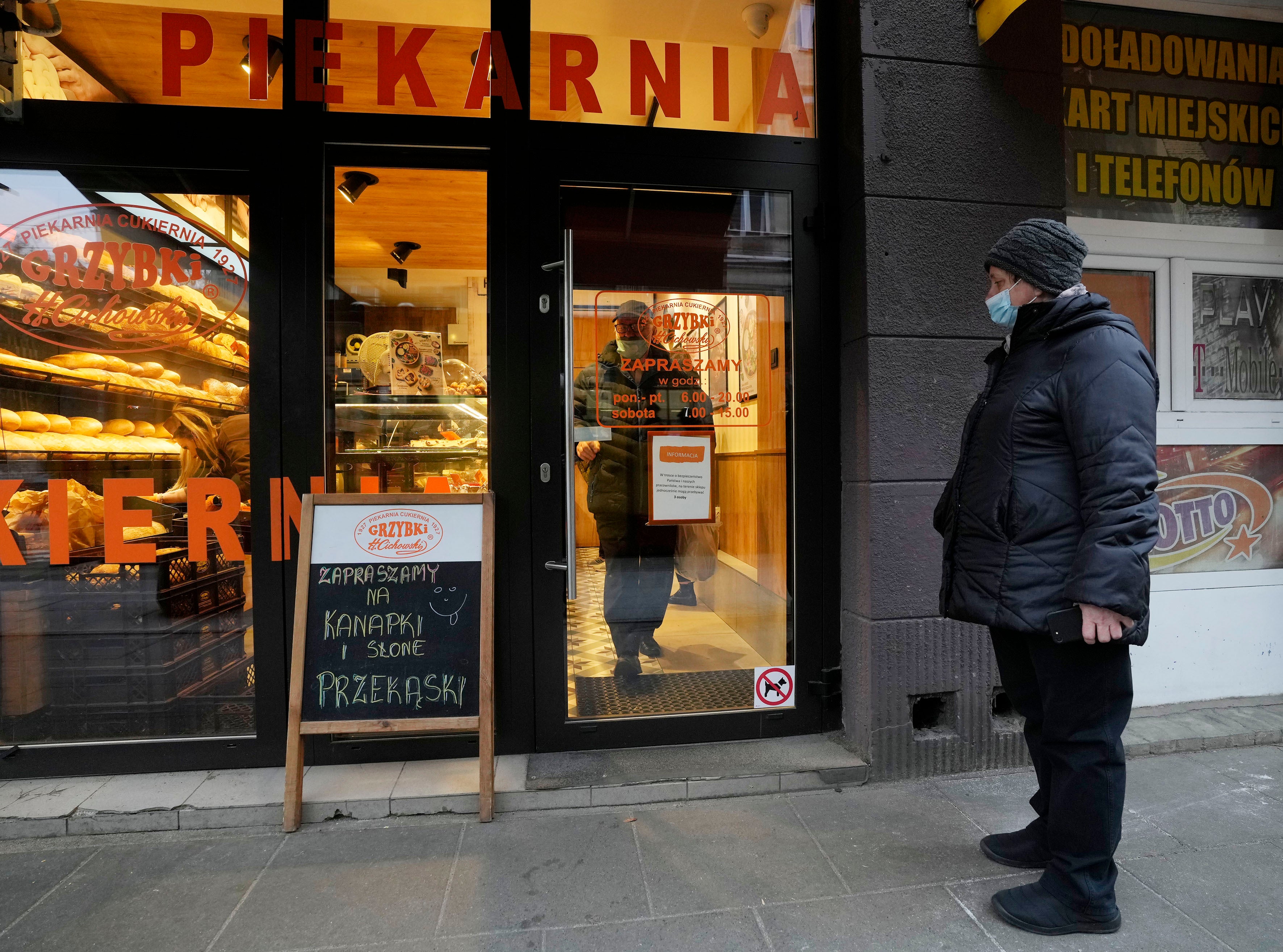Consumer prices jump 7.7% in Poland, faster than expected
Poland says consumer prices have risen 7.7% over the past year, the highest inflation rate in 20 years and a larger jump than economists had predicted

Your support helps us to tell the story
This election is still a dead heat, according to most polls. In a fight with such wafer-thin margins, we need reporters on the ground talking to the people Trump and Harris are courting. Your support allows us to keep sending journalists to the story.
The Independent is trusted by 27 million Americans from across the entire political spectrum every month. Unlike many other quality news outlets, we choose not to lock you out of our reporting and analysis with paywalls. But quality journalism must still be paid for.
Help us keep bring these critical stories to light. Your support makes all the difference.
Poland said Tuesday that consumer prices have risen 7.7% over the past year, evidence that inflation is accelerating even faster than had been expected in the largest central European economy in the European Union
The November number is the highest inflation rate in 20 years and marks a larger jump than what economists had predicted. Last month, it hit 6.8% annually, according to the statistics office.
It comes as the annual inflation rate across the 19 countries that use the euro currency hit 4.9% in November, the highest since recordkeeping began in 1997, the European Union’s statistics agency said Tuesday.
Eurozone consumer prices are being driven up by a huge spike in energy costs, much like Poland's increases are fueled by gasoline prices. They have skyrocketed 36.6% since last year, exacerbated by a weakening of the country's currency, the zloty. The weaker zloty means that imports — including oil, which is priced in U.S. dollars — become more expensive for Polish consumers.
The cost of heating jumped 13.4%, while food and non-alcoholic beverage prices rose 6.4%.
While rising prices are straining households and businesses worldwide, they are hitting countries in central Europe, including Poland and Hungary, especially hard.
Inflation is one of the effects of measures that governments worldwide took to prevent economic catastrophe when the coronavirus pandemic led to lockdowns last year. Many countries, including Poland, pumped money into keeping businesses afloat, while central banks kept interest rates at historic lows to stimulate economic activity.
That effort has been largely successful. Poland's economy grew 5.3% in the July-September period and is predicted to keep expanding at about that pace next year. Unemployment is low.
But as economic life has started returning to a pre-pandemic normal, a surge in demand has tested the capacity of suppliers to keep pace. Shortages of raw materials are one reason for the price surges.
Polish Prime Minister Mateusz Morawiecki last week blamed rising inflation largely on the soaring cost of Russian gas imports. He also faulted the EU's climate program and efforts to reduce greenhouse gases, with the cost of emitting carbon hitting record highs recently.
He made his comments as he announced temporary tax cuts on gasoline and home energy bills in December meant to mitigate some of the effects of rising prices.
Subscribe to Independent Premium to bookmark this article
Want to bookmark your favourite articles and stories to read or reference later? Start your Independent Premium subscription today.